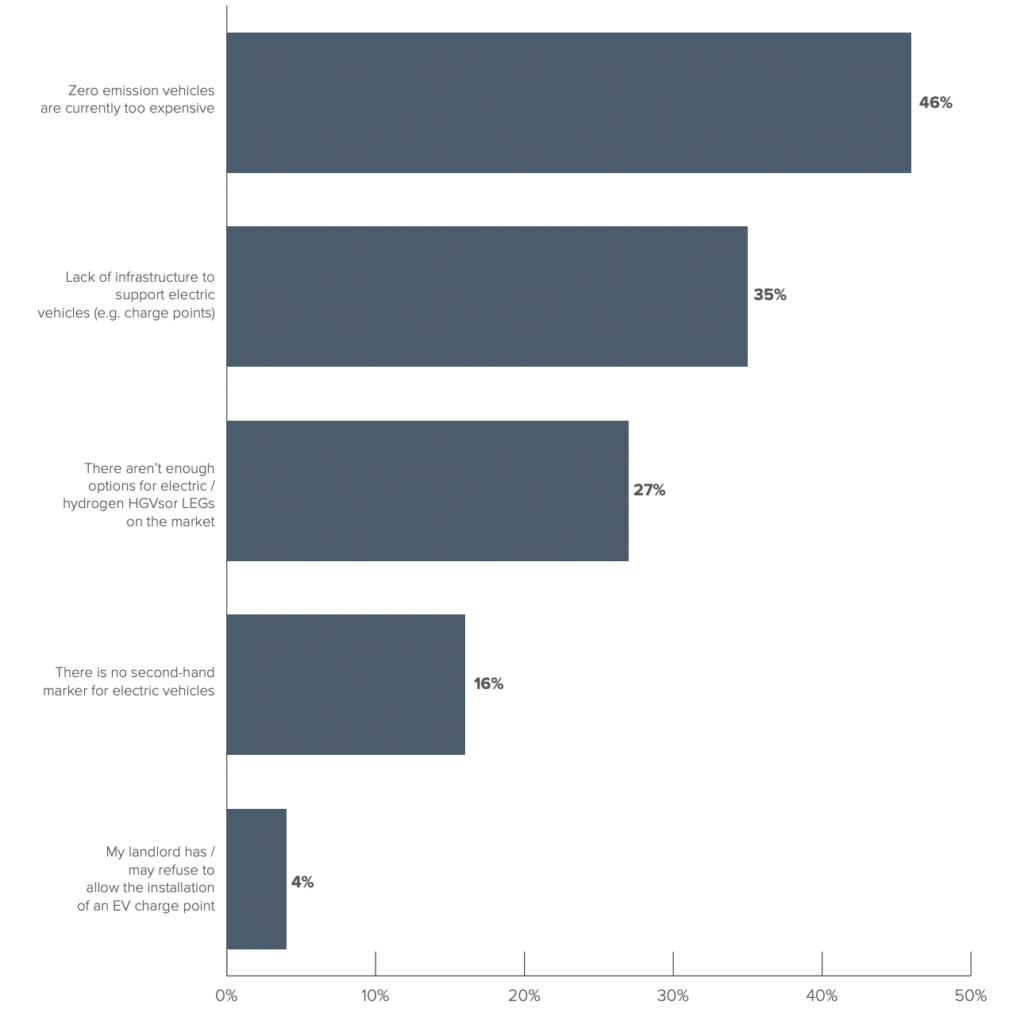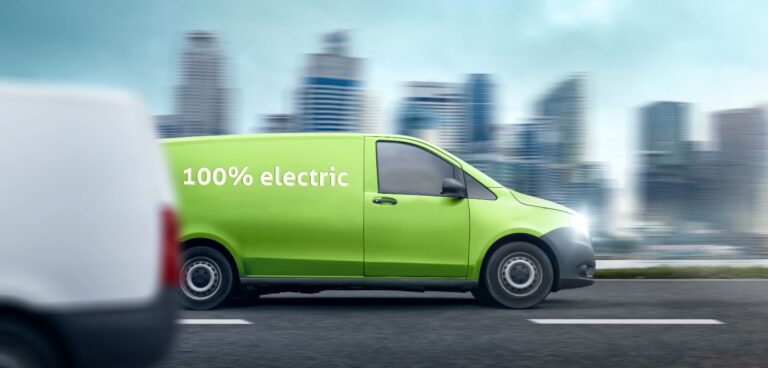The Federation of Small Businesses (FSB) has said more needs to be done to help businesses and independents switch to zero-emission vehicles, which is a ‘critical’ factor in achieving net zero targets.
Its latest report Accelerating Progress: Empowering small businesses on the journey to net zero highlighted that while the uptake of electric transport options is encouraging, upfront cost and infrastructure are still barriers to most day-to-day businesses.
It said the UK government must also face up to the reality that a total switch to zero-emission vehicles (ZEVs) without changes to the taxation system will leave a hole in public finances. The report called for transport authorities to be honest with businesses and those switching as to how that will be met.
According to FSB, a frank conversation about the future of vehicle taxation and replacing the lost revenue from fuel and Vehicle Excise Duty is required.
As part of the report, FSB surveyed small businesses that have already changed travel habits. It found that 36% of small businesses in accommodation and food services have switched or plan to switch all or some of fleets to ZEVs. While 29% of small businesses in the construction sector have installed a workplace charging point for EVs.
According to the findings, the key barriers faced by small businesses, which have not yet taken steps to change transport habits, are ZEVs are currently too expensive (46%) and there is a lack of infrastructure to support EVs (35%).

The federation has therefore recommended that authorities across the UK should ensure that businesses operating in and around Clean Air Zones or Low Emission Zones receive charges back in form of grants to purchase of ZEVs.
It also called for the plug-in-car grant to be extended and funded beyond March 2023, to give small businesses confidence in planning the transition to zero emission vehicles. The report stressed the adequacy of the grants for small vans (currently £3,000) and large vans (currently £6,000) should be kept under review.
Additionally, the report suggested a scrappage scheme should be introduced for diesel commercial vehicles. These can be recycled in exchange for grants towards cleaner hybrids and zero emission vehicles.
It also said there should be a coherent set of target-based infrastructure strategies to deliver the necessary charging and rapid charging infrastructure by 2030.





